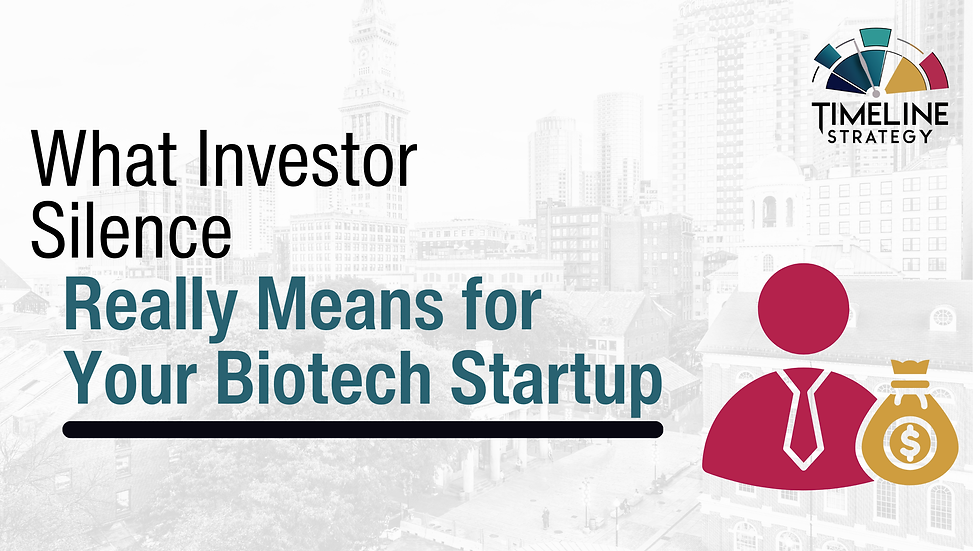AI in Biotech Strategy: Cutting Through the Hype to What Actually Matters
- Attila Foris

- Aug 20, 2025
- 4 min read
Updated: Aug 21, 2025
Artificial intelligence has officially crossed from buzzword to boardroom.
Every pitch deck seems to mention it. Every investor panel wants to hear about it.
For early-stage biotech founders, especially those with a scientific background, this pressure can be both exhilarating and confusing. You're told that AI is the future. That without it, your company is obsolete.
That VCs won't take you seriously unless you mention it by slide three.
But here’s the truth: AI is not a strategy. It's a tool. And like any tool, it’s only useful when it’s in the right hands — for the right job.

The Reality of AI in Biotech Strategy
Let’s be clear: AI has real potential in biotech.
From target discovery to predictive toxicology, machine learning models are reshaping how we think about speed, scale, and complexity.
Algorithms can now predict interactions, optimize compound libraries, and even simulate experiments that would have cost millions in a lab.
But none of that means AI belongs in your company.
Far too many early-stage biotech founders confuse the existence of AI with the relevance of AI.
They assume that just because something is technologically impressive, it must be strategically valuable. That’s how you end up with AI initiatives that burn time, waste cash, and distract from core milestones.
Three Hard Truths:
AI won’t fix a broken business model.
If you haven’t validated your value proposition or figured out how to fund your runway, AI won’t save you. It may even accelerate your failure. The most sophisticated algorithm in the world won’t make up for a weak market fit or a confused positioning.
Investors care more about clarity than code.
You can have the smartest model, but if your milestone path is incoherent, no one writes the check. AI doesn’t replace the need for crisp, fundable logic. It should support your story, not confuse it.
Not every biotech needs AI.
For some platforms, AI is foundational. For others, it's a distraction. You need to be brutally honest about which one you are. If you’re using AI because you feel you have to, not because it accelerates your unique hypothesis or unlocks a bottleneck, it’s probably noise.

Where AI Does Add Strategic Value
So how do you distinguish real signal from hype?
Start by asking: Where does AI move the needle in my specific business?
Here are three areas where AI can create meaningful leverage:
1. Preclinical Prioritization
Using AI to triage compound libraries, analyze omics data, or prioritize biological pathways can dramatically reduce expensive wet-lab cycles. The key is integration. AI must plug into your current workflows and inform actual decisions — not live in a silo as a proof-of-concept.
Ask: Does this model help us choose better experiments? Faster? With more confidence?
2. Data-Driven Milestones
When your strategy includes AI-derived insights (e.g., biomarker discovery, digital pathology outputs), those outputs must map to strategic inflection points. If your AI work doesn't reduce development risk or accelerate timelines, then it’s academic.
Ask: Will this insight help us secure our next round? Sign our next partner? Hit our next milestone?
3. Partner Signaling
Strategic use of AI can enhance your attractiveness to pharma or CROs. Not because you use AI — but because you use it in ways that derisk science, strengthen your IP, or create defensible differentiation. That’s the signal.
Ask: Can we demonstrate that AI enhances our BD value, not just our tech stack?
A Better Question: "What Problem Are We Solving?"
Let’s bring it back to first principles.
AI is not your business model.
It’s a tool. A potentially powerful one. But unless you’ve anchored your biotech strategy in a real-world problem — a patient need, a technical gap, a market inefficiency — AI becomes just another shiny object.
Instead of asking, How do we use AI?,
ask: What is the core problem our company exists to solve? Then layer AI on top only if it helps solve that problem better, faster, or cheaper.
The best founders don’t chase trends.
They build clarity. Then, and only then, do they integrate the right tools.
Final Thought
If you’re an early-stage biotech founder considering AI, take a breath. Don’t let pitch pressure or peer envy push you into technical debt.
Start with the fundamentals:
What is the core problem your company exists to solve?
How will you prove traction to investors and partners?
Does AI directly support that path?
If the answer is yes, lean in. Build something great. Use AI as a force multiplier.
If not, walk away. There’s nothing strategic about chasing noise.
Ready to Break Your Bottlenecks?
If you're feeling the friction — indecision, misalignment, slow momentum — it's not just operational. It's strategic.
Attila runs focused strategy consultations for biotech founders who are ready to lead with clarity, not just react to pressure. Whether you're refining your narrative, making tough tradeoffs, or simply feeling stuck, this session will get you unstuck — fast.





Comments